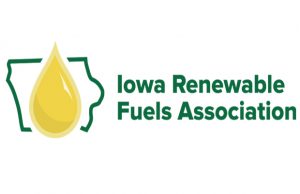 According to the Iowa Renewable Fuels Association, ethanol production in the state held steady last year at 4.6 billion gallons.
According to the Iowa Renewable Fuels Association, ethanol production in the state held steady last year at 4.6 billion gallons.
IRFA Executive Director Monte Shaw says stagnant U.S. ethanol demand combined with increasing corn yields have resulted in lower farm income, but he believes new ethanol markets are within reach that can restore balance to the corn market.
“We need to build corn demand, and the near-term growth solution is to secure nationwide, year-round E15,” said Shaw. “Corn production keeps growing but ethanol production has leveled off over the last four year as the 2024 production numbers reflect. The result has been the largest two-year drop in farm income ever. The good news is we have potential new markets to drive demand for corn and to restore farm income. Start with E15 at home, go after low-carbon export markets, and eventually take to the skies with sustainable aviation fuel.”
Total U.S. ethanol production was more than 16 billion gallons in 2024, with Iowa producing almost 30 percent.
The IRFA compiled production information from an industry survey, public reports and other industry sources.










